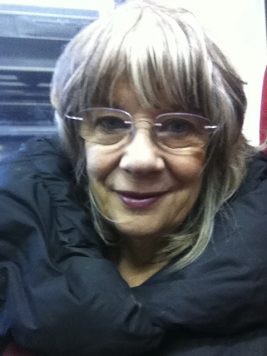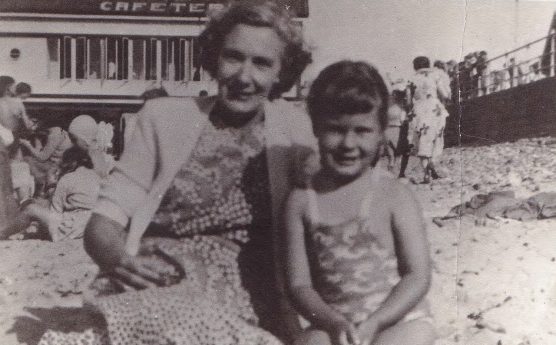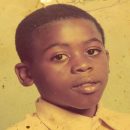Identity
Belinda Shaw: A Fantasy World
Belinda was born in Leeds in 1947. Her mother died when Belinda was just four years old and she was sent to live with another family. This traumatic event had a lasting impact on Belinda's life, and her schooling. Belinda attended mainstream primary and secondary schools.
More from
Belinda Shaw
Here Belinda describes how she coped with the loss of her family.
https://howwasschool.allfie.org.uk/wp-content/uploads/2014/08/A-Fantasty-World.mp3
But nevertheless even though everybody did their best I think from these instances I’ve recalled at school where I was – I call it behaving badly but I think really I might have been grieving or just upset or something, but nobody – I have no memory at all of this being taught to me by any adults at all. So as a result I had to deal with it all myself and I made all sorts of strange connections, which are too detailed to go into, but I lived in a fantasy world a lot I think. And what I’m thinking is that if somebody had treated me when I started school, or even when I first moved into this new family who probably were in shock at suddenly having to have a child like me, as I say clearly very weird. I used to self harm as well, I used to try and fall over and hurt myself so I could get put in a pram, very – you know, quite difficult to deal with things like this, you know.
So I feel that the teachers or some adults should have been able to help me, and that nobody did. And if they could have done I just feel my life probably would have been totally different, not saying it would have been any better ‘cause actually I’ve turned out to have quite a good life but I do think it would have taken a different course, and I certainly think my education might have taken a different course and my feelings about myself would.
So in a sense it’s not a segregation experience like going to a separate special school which is actually being removed and sent somewhere which is discriminatory and against your human rights and condoned by the state, but it’s a similar experience in the act of separation that I couldn’t understand why all this had happened to me and I’m afraid all I could think when I was a little girl was that it was obviously something to do with me, and I couldn’t quite work out what it was but it was obviously something that I was basically anything you can put around being a very bad little girl.
It was the emotional difficulties I was going through that set me apart really. And there are very many other key experiences that if people see you as different and you get some sort of stigma attached to you and then you think it’s your fault and then this builds on a stigma and in the end you’ve got this situation where prejudice is building up against you and it’s all very similar.
Transcript
I was sort of very unhappy as a child, and I’ve always reflected on that as an adult, and it seems to me that if – a lot of the problems were because of my mother dying when I was very young and my being very quickly separated from not only my mother, but my brother and my father. No fault of anybody’s, it was the circumstances. My father was a commercial traveller, he was away all the time, couldn’t look after a little girl and in fact men didn’t look after little girls then on their own. My brother was just starting university, and er, I suppose normally I would have ended up in a children’s home, if it hadn’t been for an auntie that was willing to have me.But nevertheless even though everybody did their best I think from these instances I’ve recalled at school where I was – I call it behaving badly but I think really I might have been grieving or just upset or something, but nobody – I have no memory at all of this being taught to me by any adults at all. So as a result I had to deal with it all myself and I made all sorts of strange connections, which are too detailed to go into, but I lived in a fantasy world a lot I think. And what I’m thinking is that if somebody had treated me when I started school, or even when I first moved into this new family who probably were in shock at suddenly having to have a child like me, as I say clearly very weird. I used to self harm as well, I used to try and fall over and hurt myself so I could get put in a pram, very – you know, quite difficult to deal with things like this, you know.
So I feel that the teachers or some adults should have been able to help me, and that nobody did. And if they could have done I just feel my life probably would have been totally different, not saying it would have been any better ‘cause actually I’ve turned out to have quite a good life but I do think it would have taken a different course, and I certainly think my education might have taken a different course and my feelings about myself would.
So in a sense it’s not a segregation experience like going to a separate special school which is actually being removed and sent somewhere which is discriminatory and against your human rights and condoned by the state, but it’s a similar experience in the act of separation that I couldn’t understand why all this had happened to me and I’m afraid all I could think when I was a little girl was that it was obviously something to do with me, and I couldn’t quite work out what it was but it was obviously something that I was basically anything you can put around being a very bad little girl.
It was the emotional difficulties I was going through that set me apart really. And there are very many other key experiences that if people see you as different and you get some sort of stigma attached to you and then you think it’s your fault and then this builds on a stigma and in the end you’ve got this situation where prejudice is building up against you and it’s all very similar.
Explore more
Explore stories by theme or view the timeline of significant events in education for disabled people
![How Was School? [logo]](https://howwasschool.allfie.org.uk/wp-content/themes/hws-base-theme/assets/img/allfie-logo-original.svg)





